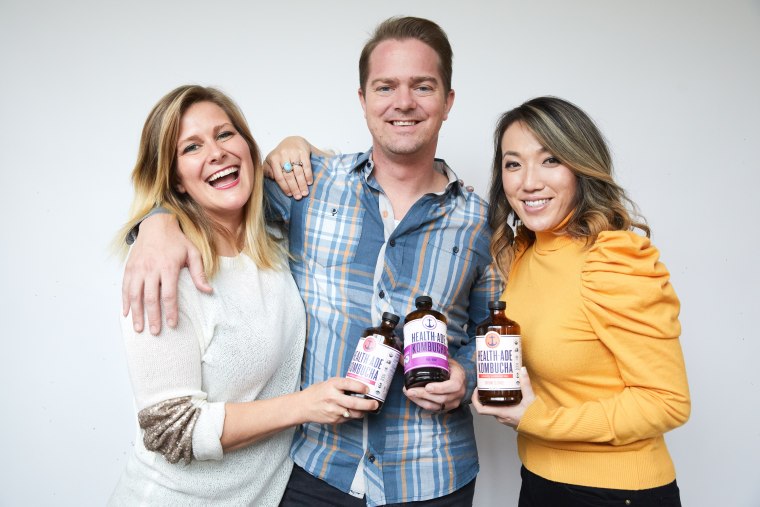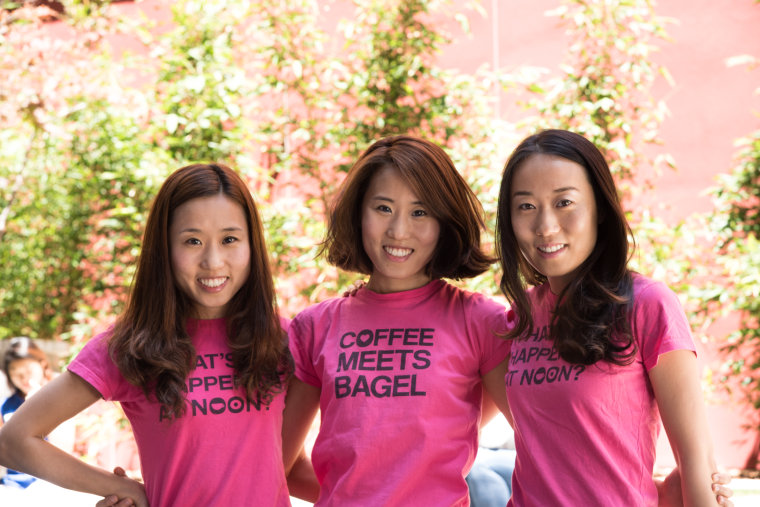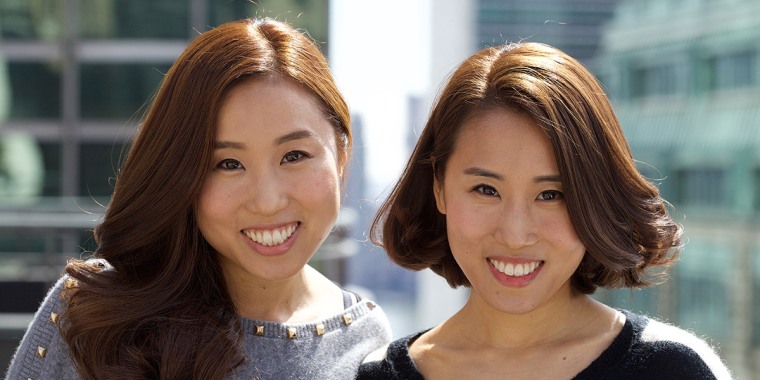For Daina Trout, professional life is mixed not only with the personal but the marital: She founded Health-Ade Kombucha in 2012 with her husband Justin and best friend Vanessa Dew.
“I thought, ‘Oh, it’ll be no big deal,’” Trout said of the Los Angeles-based company. “... I was naïve. My husband reports to me; that’s not natural. My best friend and I fight about work sometimes; that’s not natural.”
Looking back at the past seven years’ successes, arguments and struggles with boundaries, “there are definitely pros to the situation, but there are also pitfalls to watch out for,” Trout said.
She and two other startup founders shared with Know Your Value their tips and best practices for working with friends and family.
In the discussion phase
Set expectations.
When Marni Blank and younger sister Willa decided to open Blank Studio, a New York loft rentable for photo shoots and other creative work, “we literally sat down and wrote down our own strengths and weaknesses, and the same list for the other person,” Marni Blank said.
The sisters noted they have very different personalities. Willa previously worked in fashion, while Marni came from the real estate and law worlds.
“We are so different that we needed that honest look at ourselves, and we needed to assess how this could work,” said Willa. They also made sure that their commitment to the business was equally strong, Blank said, because one person dedicating their life to it and one person seeing it as a side gig just wouldn’t work.
Establish boundaries between work and home.
“What you feed grows, and what you don’t fails,” said Trout, who noted having a business arrangement with a spouse or friend can be difficult on the personal side. “…When you enter a working relationship with your husband and with your best friend, you have to completely compartmentalize.”

Trout and her husband aim to keep weekends “completely sacred,” i.e. free of work, and “we’ve learned the hard way that we have to have an official date night at least twice a month.” She finds it easier to manage her friendship with Dew: “We don’t live together so that’s simpler in a way, but also we’ve not been great about making time for our friendship. I had my baby shower the other day, and when she arrived we hugged each other so hard. Our friends were like, ‘Don’t you guys see each other all day?’ But we don’t have our friend hats on at work.”
Meanwhile, the Blank sisters no longer take as many vacations together as they once did, in part to get space and in part because one sister needs to be “on” for the business.
Decide the equity split — before you’re forced to
One of the “roughest times” for the founders of the San Francisco-based dating app Coffee Meets Bagel, Arum, Dawoon and Soo Kang, was formalizing the divide of equity.

“Because we’re family, we never formalized it and just said, ‘Oh, we’ll figure it out,’” Dawoon Kang said. “But then you go to fundraise and you actually need very clear documentation on who owns what.”
And so the conversation was forced; tough decisions had to be made. Each sister had switched to full-time at Coffee Meets Bagel at different periods, and “we had different thoughts about what was fair,” Kang said. “How do you tell your coworker, much less your sister, that you think you deserve more because of X, Y, Z?” The sisters’ deep trust and transparency helped them work it out, but looking back, Kang wishes they had solidified equity much earlier.
Getting started
Get professional help and re-learn how to talk to each other.
The Coffee Meets Bagel sisters hired consultants to help them learn how to work together, and Kang recommended everyone hire an executive coach and a therapist to help them set up healthy habits. Even meeting for an hour once a month can be a massive boon, she said.
“When you’re in a startup you think you need to do it all on your own—and you don’t want to spend money—but this is area you can’t skimp,” Kang said. “As family you have so much baggage in the way you see each other and listen and communicate. But how solidly you communicate and work things through, especially at the beginning stage, will make or break the company.”
Clearly delineate roles, even if you’re all wearing a bunch of hats.
“My role in the beginning was really no different from Justin’s or Vanessa’s role,” said Trout. “When you’re a founder, you’re a founder; the title doesn’t matter, really, because you’re picking up that broom if you need to.”
But don’t be tempted to leave things that way. As the company grows it “professionalizes and becomes more sophisticated,” Trout said, and you’ll be forced to more clearly define those roles.
Kang agreed: “It’s so important not to step on each other’s toes. In the beginning it was like, ‘I lean toward marketing, you’re more creative, you’re more organized’ — but then we went to plan an event, and that involves all of those areas. Clarity on responsibilities suddenly became key really quickly.”
In the thick of things
Find someone else — anyone else — to vent to about work.
Recently Trout and Dew were talking on a Friday night. Dew had a bad day at work, “and I totally jumped to solutions,” Trout said. “I’m the CEO, she’s bringing up issues with our business, and I jumped to, ‘Wait, who did that? Why did she get the Excel sheet wrong? What exactly happened?’”
Dew told Trout she just needed her to listen. “It turned into a bit of a fight with us both crying. That doesn’t happen often with Vanessa and me, but we’ve learned there’s something about the proximity that makes this challenging. It’s hard to vent to someone you work with about work, period. Another friend or a therapist or anyone who doesn’t have a hand in the game helps you avoid that fight.”
Embrace complementary differences.
Focus too much on your strengths and the other person’s weaknesses, and you’ll build up resentment. As long as you’re all putting in equal effort, try to appreciate what you both bring to the business.
“Because we’re so different, that’s why we work,” Blank said. “I have strength in negotiations that [Willa] doesn’t have, but when it comes to curating a beautiful workshop event, that’s where she shines. We couldn’t do it if we were the same person.”

Recognize things won't always be perfect, and sometimes working relationships run their course.
Family and friend business partnerships don't always last forever. If it's truly no longer working, be honest with your partner--and know that the end doesn’t have to be dramatic.
But difficult times are an inherent part of this type of working relationship, so do be prepared to work through them together. As Trout puts it: “It’s not all roses and butterflies working together, and that has to be OK."
